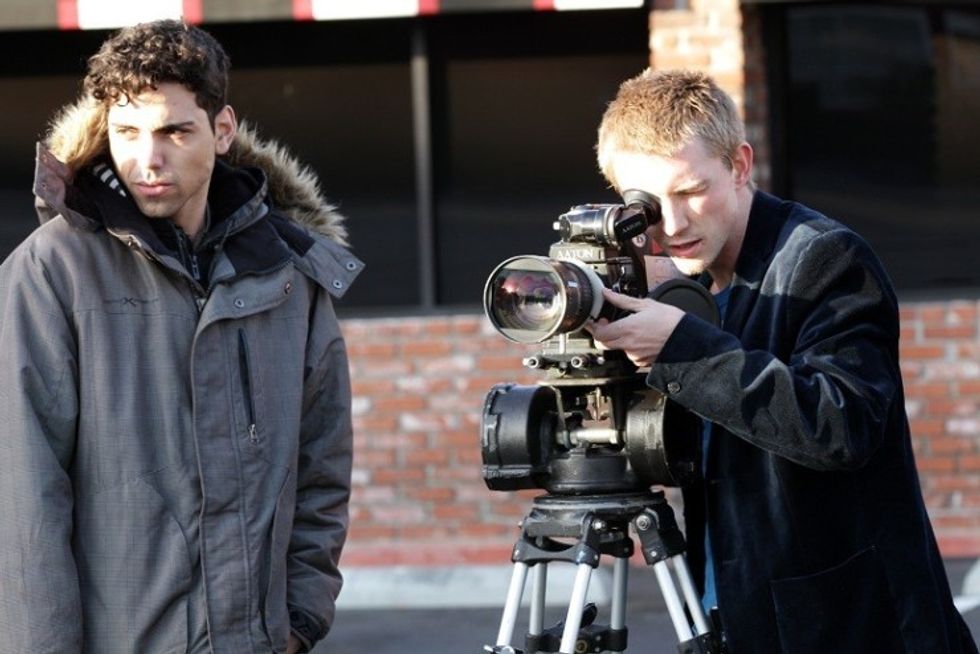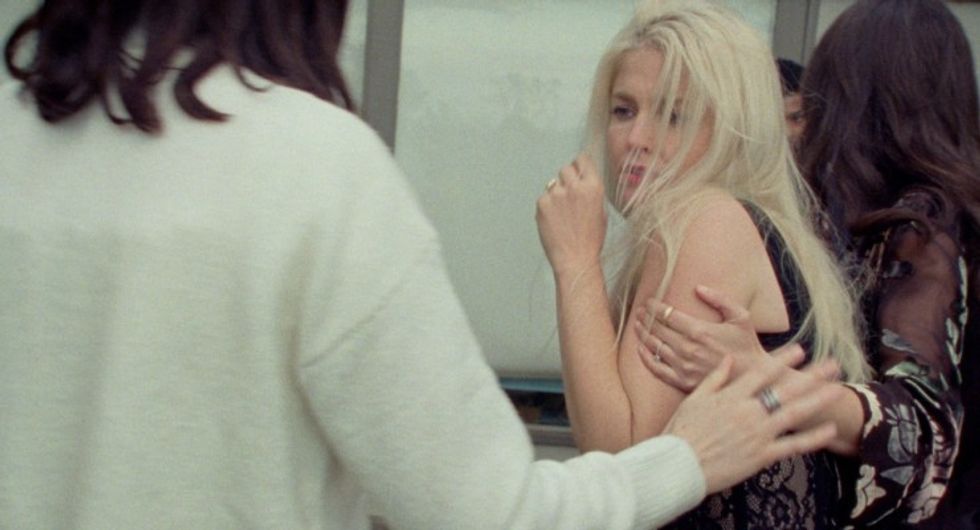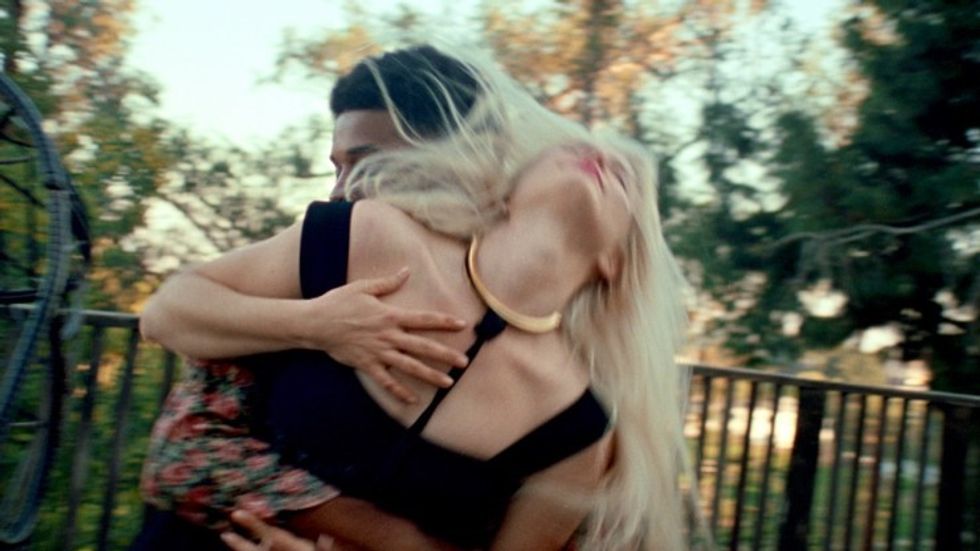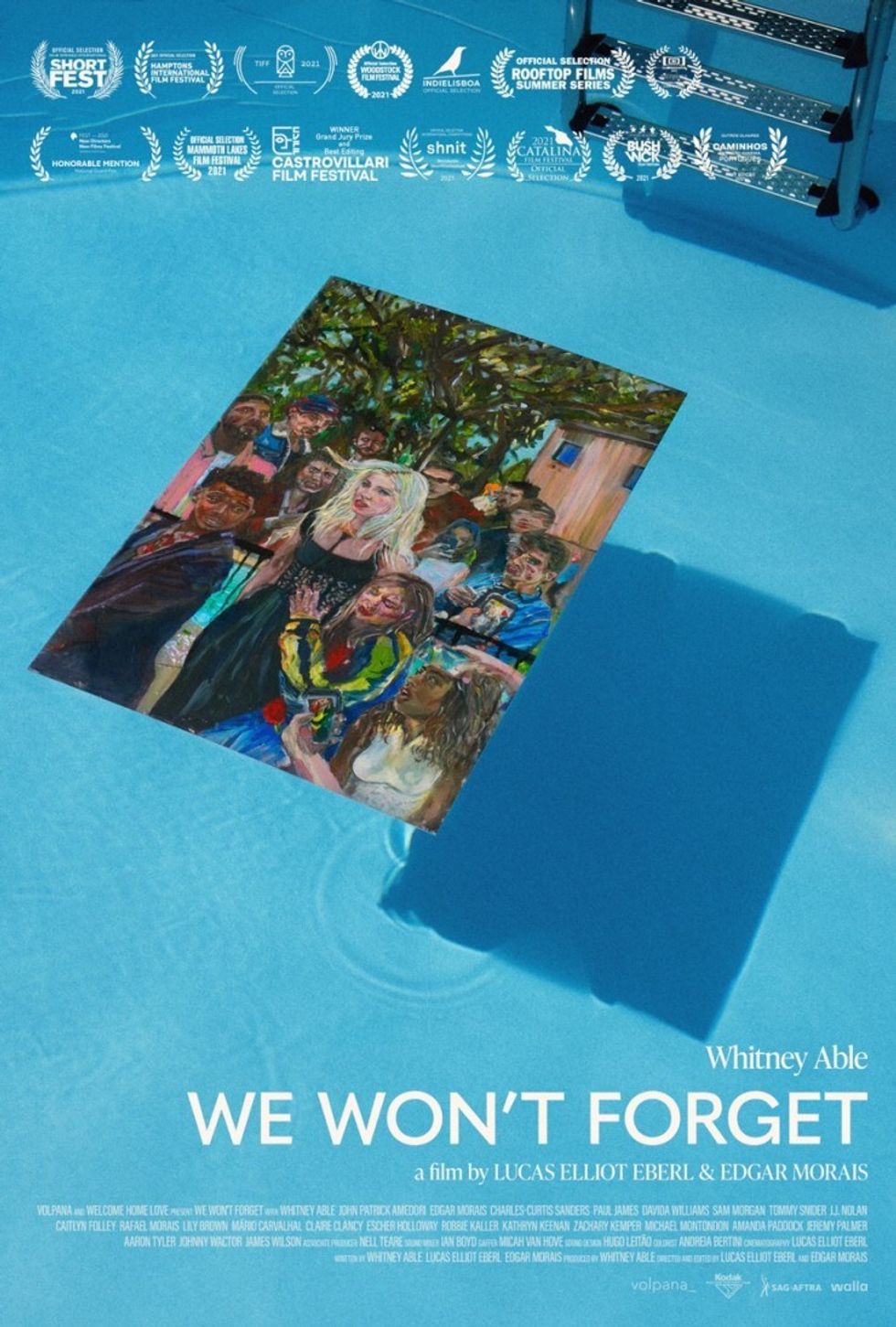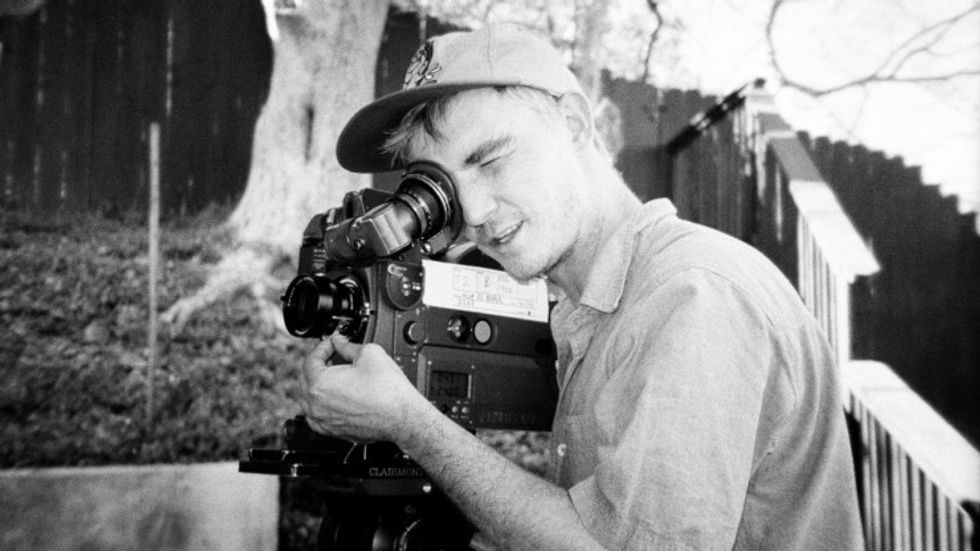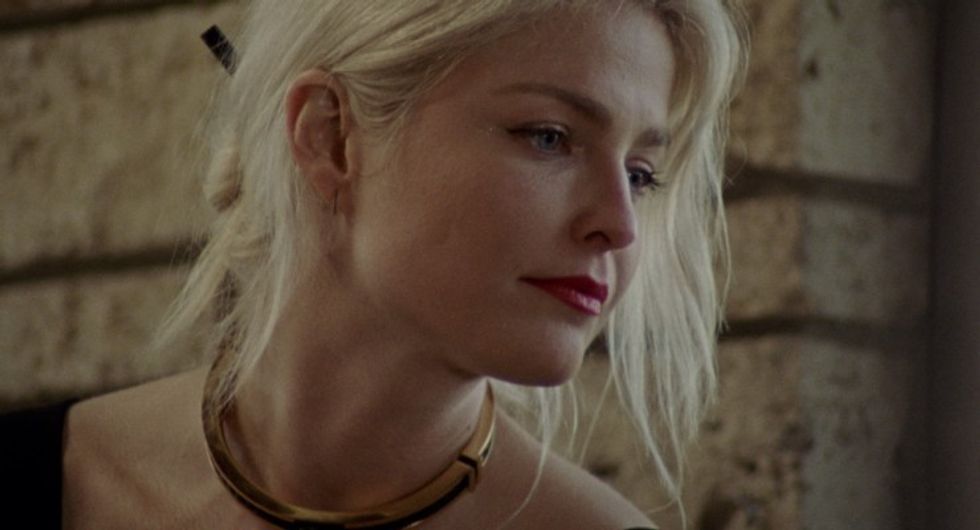Think You Can't Shoot on Film with a Low Budget? The 16mm Short 'We Won't Forget' Proves Us Otherwise
It's possible to shoot a cinematic short on film with limited time and budget.
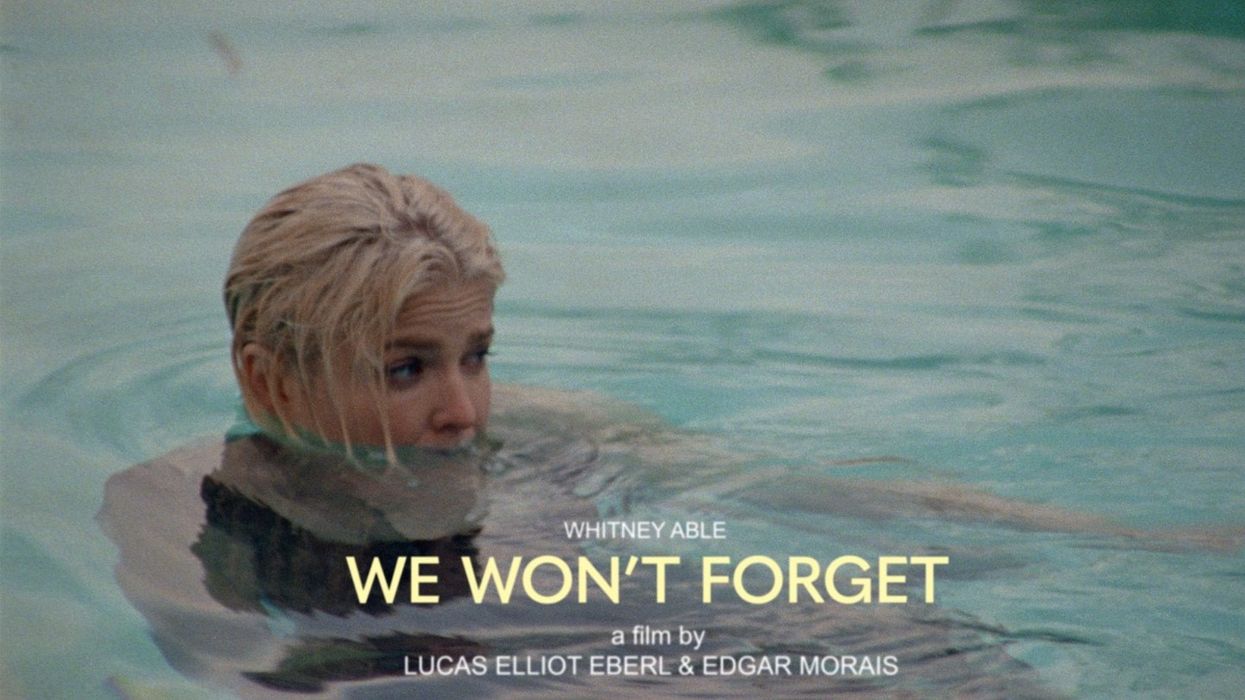
We Won't Forget is a super-16mm film with raw, intense, naturalistic acting and a subtle study of contemporary social interactions which, in a voyeur-style, ropes in themes including mental health issues and the toxic aspects of social media in which all participants—including us as the audience—are potentially implicated.
After premiering at Palm Springs International ShortFest and winning the Grand Jury Prize and the award for Best Editing at Castrovillari, the Portugal/USA co-production screened at Hamptons, Woodstock, Tirana, Rooftop Films, Curtas Rio, IndieLisboa, and others. It was directed by Edgar Morais (Heatstroke) and Lucas Elliot Eberl (Choose Connor) and they wrote it in collaboration with the lead actor Whitney Able (Monsters).
As gaffer on this film, I was there for the whirlwind week of prep and two days of shooting, but I wanted to talk to Morais and Eberl to get more insight about the film. Watch the film and then dive deeper into our conversation below.
No Film School: What was the genesis of We Won’t Forget?
Morais & Eberl: We had just returned to Los Angeles after being in Portugal filming the feature we’re working on and reconnected with our friend Whitney Able at a party at her house. That night, creative sparks started flying between the three of us and we decided on developing something together. We had been good friends for years and it was clear that we all wanted to work together on a deeper collaborative level, so every few days we would meet up and have these wonderful creative brainstorming sessions where we floated around many different concepts which we could shoot at Whitney’s house in a short amount of time.
The three of us related to the concept that would later become We Won’t Forget, that of a character who ends up releasing her bottled up emotions publicly and having a freak out while hosting a party for her friends leading to a chaotic scenario where everyone becomes involved and it becomes unclear where the line of enabler versus victim lies, especially when everyone has a camera on their phone that can record anything at any given time, and access to social media to share it on.
This can create an incentive for exploitation that is more attractive than the sanctity of real-life friendships and interactions. There is a general cloud of awkwardness, and skepticism of people’s intentions, that permeates many situations in a time when social media is for many people the dominant source of their self-worth, their social capital, and the decider of whether people hold each other in high regard, or even respect each other. We wanted to create a scenario that could feel like the physical manifestation of predatory social media algorithms in the real world.
The script that we wrote was very technical, with practical details for filming and a lot of the interior work about Whitney’s character that we had all worked on—but only the three of us ever saw it, because we wanted to find most of the dialogue on set with the actors while filming so we could get honest reactions to what was happening in the moment, rather than trying to “play” a more grand concept. Also, we wanted the ability to continuously change plans and move on to better ideas when we had them without any kind of attachment, which is another reason the three of us worked so well together.
NFS: Tell us about filming—how did you create the environment necessary prior to filming?
Morais& Eberl: We had a cast of 25 people, and so in order to get this done in between everyone’s busy schedules we only had two days of filming.
As you know, Micah, our interiors had large windows, where we mixed natural daylight with elevated JEM balls and practical lighting in order to have the whole inside area completely "in play" for us to follow our instincts and to avoid time-consuming lighting setups in between shots. The exteriors had both direct sunlight and shaded areas, as well as varying weather conditions/cloud cover during the different filming days which created some challenges.
We created the entire party environment to be an ongoing “flow” during the shooting days and found shots we liked during the process because we were working with actors that we had an enormous amount of faith in, many of whom we had worked with before. We told them to treat everything that happens as a reality and be in the moment—that we were looking for them to effortlessly achieve the most difficult kind of acting, the kind of natural acting that doesn't feel like acting, and we are incredibly proud of everyone’s work.
And then Whitney captured the soul of the film in this brilliant way, she’s outstanding in the film, portraying someone in such a delicate and treacherous situation.
We are always trying to create the clearest vessel for the most human, spontaneous, and truthful moments that we will then structure and refine during the editing process. So we try to utilize this magical advantage of the medium of cinema as best we can. The result of this, obviously, is that editing for us requires much more patience and trial-and-error than a traditionally scripted film.
On both days, we shot through the entire film, which was really helpful on the second day because everyone had been through the experience the day prior and was more informed and prepared for what was to come. The actors understood that the natural energy of their conversations was much more important than the exact dialogue.
NFS: Why did you choose to shoot on film?
Morais & Eberl: From the beginning, we wanted to shoot on film. We have been shooting on film for most of our careers, but more than that, for this movie, 16mm was a way to visually contrast the familiar look of video that is shot on a phone. On a practical level, shooting on film allowed us to use minimal lighting and crew and create images that we love.
Our strategy was to work with a small crew with people we deeply trusted, like you, Micah, and be nimble and able to change plans quickly without a major ordeal. It was clear to us that the Kodak 16mm 7203 and 7207 stocks would work together very well and provide the necessary dynamic range to account for all of these variables in order to create a consistent look for the single day in which the film takes place.
NFS: Tell us about post-production.
Morais & Eberl: After we finished shooting, we went back to Portugal, as it made sense since we are still working on our feature and now that we had finished filming we were going to be focused on picture cutting for the short film and the feature, so we did not need to be in LA. Also, we shot We Won’t Forget in mid-February, 2020, so, you know, the pandemic.
We shot the movie in two days, but our editing and post-production process took more than one year. We had several Portuguese actors in the film, but, importantly, all of our post-production took place in Portugal. Our sound design, which sounds spontaneous as if it’s just raw production audio, when it is really layers upon layers of carefully edited dialogue and ADR to create the emotional journey, was headed by the great Hugo Leitão at Meia Laranja Studios.
Our color timing was done by the brilliant Andreia Bertini, a colorist we have so much admiration for, at Walla Collective. Most people watching the movie wouldn’t think there are visual effects, but there are, and the audience can’t tell thanks to the excellent work of Irma Lucia Studios here in Lisbon.
NFS: What have you learned during this process, and what advice would you give other filmmakers as a result?
Morais & Eberl: Cinema is a living, breathing process, and don’t let your attachment to old ideas stifle your process and prevent new discoveries. Be willing to completely and radically alter the vision when new and better inspirations come through. On the other hand, all that matters is the experience the audience has, which is directly related to how true you are to your own voice.
So really—fuck everyone else’s advice, including ours.
